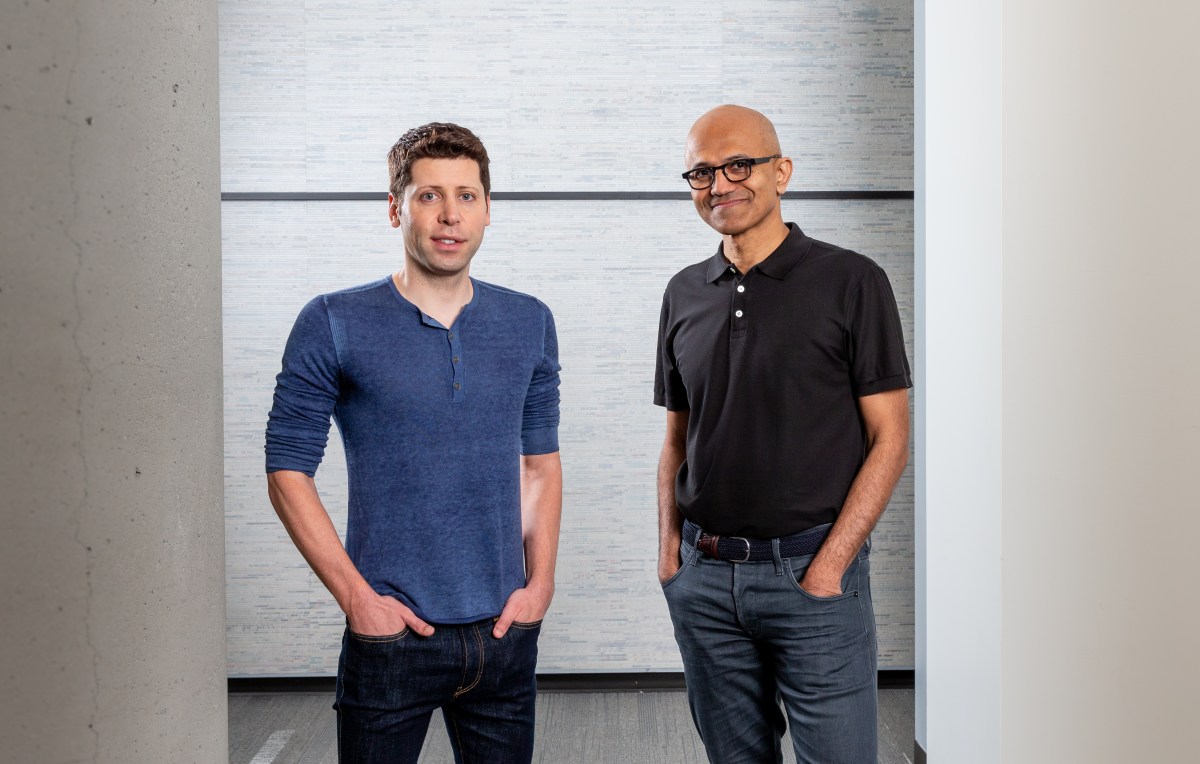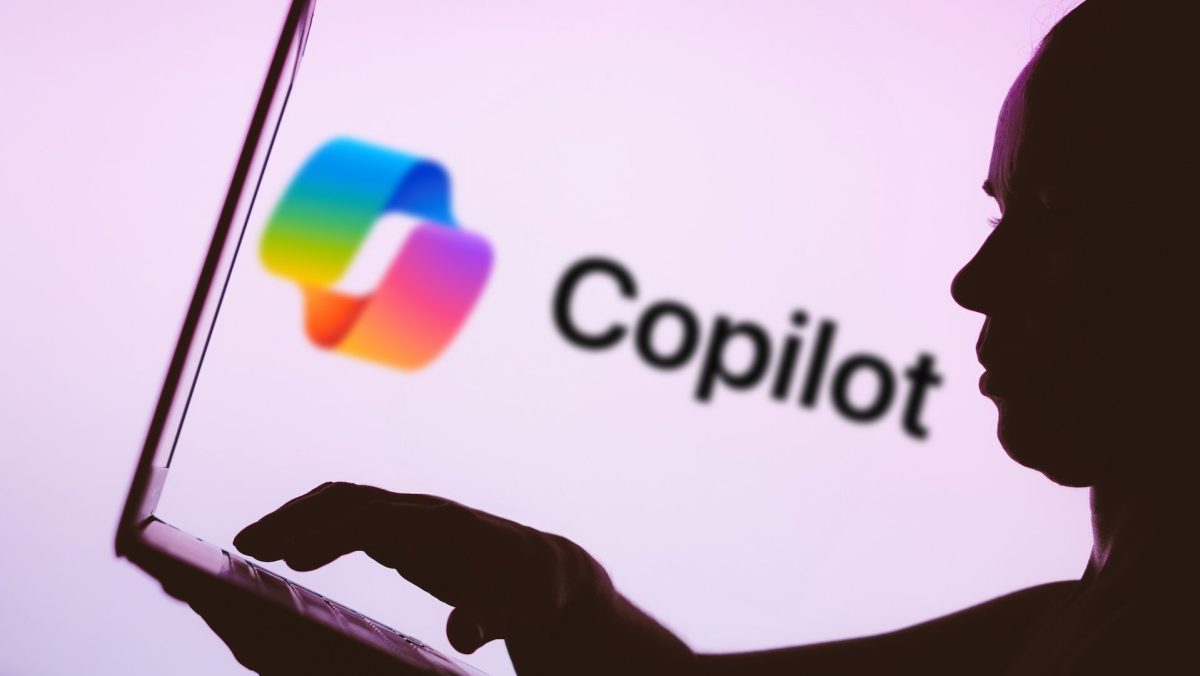- Vision Quest
- Posts
- This Week in Tech 63
This Week in Tech 63
China releases their AI Agent Manus, Microsoft has AI and handheld gaming plans while the private space race heats up with Eric Schmidt joining Relativity Space
Welcome to the cutting edge ⚔️
Read time: 8 min
Today’s Slate
MIT takes China’s AI agent Manus for a test drive
The tide turns on OpenAI, forcing them to find new partners
Microsoft is planning to integrate Copilot AI into video games like Minecraft
Meta and its suppliers are gearing up for advanced AR glasses
Shohei Ohtani joins the metaverse in Fortnite
Xbox handheld is on it's way to compete with the likes of Nintendo’s Switch
Former Google CEO Eric Schmidt is taking over as the CEO of Relativity Space
The. Future. Is. Here.
Artificial Intelligence
At a glance
Manus AI gains global attention: Developed by China’s Butterfly Effect, Manus is a general AI agent praised for its reasoning and task execution, drawing comparisons to DeepSeek.
AI agent, not just a chatbot: Unlike traditional AI chatbots, Manus uses multiple AI models and autonomous agents to complete complex tasks, offering a more interactive and adaptable experience.
Limited access and system instability: Fewer than 1% of waitlisted users have access, and the platform struggles with system crashes and server overload due to high demand.
Performance in real-world tasks: Manus excelled in structured research tasks like compiling lists but struggled with complex data retrieval, paywalled content, and large-scale assignments.
Transparent and collaborative experience: The AI provides step-by-step insights, allows user intervention, and remembers past instructions for a personalized workflow.
Lower cost but higher failure rate: Manus costs about $2 per task, one-tenth of DeepResearch, but suffers from stability issues that the team is working to address.
Our vision
Manus represents a significant evolution in AI agents, moving beyond chat-based interactions to autonomous task execution. Its transparency and adaptability make it a powerful tool for professionals needing structured research and analysis. While it faces challenges in scale and stability, its lower cost and ability to refine tasks dynamically position it as a compelling alternative to existing AI assistants.
As China continues innovating in AI, Manus could accelerate the adoption of autonomous agents in both consumer and enterprise applications, setting new standards for AI-powered productivity tools.
At a glance
OpenAI’s $12B CoreWeave Deal: OpenAI has signed an $11.9 billion, five-year agreement with AI-focused cloud provider CoreWeave, securing significant compute power.
Equity Stake: As part of the deal, OpenAI will receive $350 million in CoreWeave equity, separate from CoreWeave’s upcoming IPO.
Shifting Away from Microsoft: CoreWeave was previously dependent on Microsoft, with 62% of its 2024 revenue coming from the tech giant. This new deal diversifies CoreWeave’s customer base and strengthens OpenAI’s autonomy.
AI Compute Race: CoreWeave operates 32 data centers running over 250,000 Nvidia GPUs, including the latest Blackwell chips, addressing OpenAI’s pressing need for more compute power.
Tensions with Microsoft: Microsoft has been OpenAI’s largest backer, but competition between the two has grown. OpenAI is expanding beyond Microsoft’s cloud, and Microsoft is investing in its own AI models to rival OpenAI’s offerings.
CoreWeave’s IPO and Debt: CoreWeave is carrying $7.9 billion in debt and plans to use funds from its upcoming IPO to stabilize its finances while maintaining rapid AI infrastructure growth.
Our vision
This deal marks another clear step in OpenAI’s shift away from Microsoft, reinforcing its independence while securing vital computing resources. By embedding itself in CoreWeave, OpenAI gains both infrastructure access and ownership influence, potentially weakening Microsoft’s grip on AI cloud computing. Meanwhile, Microsoft is countering by developing its own AI models, signaling a broader industry shift where OpenAI is no longer the dominant force in enterprise AI. As competition intensifies, enterprises are diversifying their AI bets, making the future of cloud-based AI services more fragmented and competitive than ever.
At a glance
Microsoft is exploring 3D gaming for Copilot: A job listing seeks a senior software engineer with expertise in 3D rendering engines like Babylon.js, three.js, and Unity.
AI-powered gaming experiences in development: Microsoft has hinted at integrating interactive gaming into Copilot, expanding its role beyond a chatbot.
Muse AI model for interactive gameplay: Trained on Ninja Theory’s Bleeding Edge, Muse can understand game physics and generate AI-driven gameplay.
Copilot integration into Minecraft: Demonstrated features like answering in-game crafting questions, searching player inventories, and guiding actions.
Character-based AI interactions: Microsoft has tested animated AI companions in Copilot, adding a more engaging, interactive layer.
Our vision
Microsoft’s push into AI-driven 3D gaming suggests a future where chatbots evolve into immersive, interactive experiences. By integrating AI-generated gameplay into Copilot, Microsoft is positioning itself to redefine AI-assisted entertainment, potentially merging real-time procedural game creation with virtual assistants. If successful, this could compete with AI-powered game development tools and virtual world-building platforms, further blurring the lines between AI, gaming, and user-generated content in the metaverse.
Elon’s Grok is also breaking into gaming but it is focused on the creation of new video games to reinvigorate what he thinks is a stagnating industry. Let’s see how these giants battle it out to influence the future of gaming with AI.
At a glance
Cursor in talks for a $10B valuation: Anysphere, the developer of AI coding assistant Cursor, is negotiating a new funding round led by Thrive Capital, just months after raising $100M at a $2.5B valuation.
Massive revenue multiples: Investors may value Anysphere at 66x its estimated $150M ARR, reflecting the explosive demand for AI-driven coding tools.
AI coding sector sees surging valuations: Codeium, another AI coding firm, is raising capital at a $3B valuation—roughly 70x ARR—while other startups like Poolside are attracting investor interest.
AI adoption fastest in coding tools: Investors are prioritizing AI-powered development platforms over applications in sales, law, and healthcare, seeing them as the most commercially viable AI products.
Our vision
The AI coding sector is emerging as one of the hottest investment areas, with companies commanding sky-high valuations as demand for developer productivity tools surges. Anysphere’s potential $10B valuation signals growing confidence in AI-driven software engineering, where coding assistants could soon become as ubiquitous as IDEs themselves. With major players like Codeium and Poolside also gaining traction, the battle for dominance in AI coding tools is intensifying, positioning this space as a core driver of AI's next wave of enterprise adoption.
Spatial Computing
At a glance
Meta’s Orion AR Prototype: Achieved a groundbreaking 70-degree field of view using silicon carbide lenses, surpassing the 50-degree limit of other AR glasses.
Material Advantage: Silicon carbide’s high refractive index (2.7 vs. 1.8 for glass) enables wider fields of view but is expensive and difficult to manufacture, preventing Orion from becoming a commercial product.
Artemis AR Glasses (2027): Meta's next AR glasses, codenamed Artemis, will use traditional glass, sacrificing Orion’s wide field of view to achieve a realistic commercial price point.
Industry Acceleration: Following Orion's positive reception, suppliers worldwide are now actively working to scale up production of optical-grade silicon carbide.
Future Viability: Meta believes cost reductions and improved production techniques could make silicon carbide viable for commercial AR glasses, bringing Orion-level performance to consumers.
Our vision
Meta’s Orion prototype has proven what’s possible in AR optics, but current production challenges keep it out of reach. Competing platforms like Magic Leap, HoloLens, and Snap Spectacles remain limited by glass, preventing major breakthroughs in field of view. With global suppliers now prioritizing silicon carbide, Meta’s next-gen AR devices could eventually offer industry-leading immersion, reshaping premium AR hardware in the years ahead.
At a glance
Shohei Ohtani joins Fortnite’s Icon Series: The three-time MVP becomes the first MLB player featured in Fortnite, with outfits, accessories, and emotes launching on March 17 at 8 p.m. ET.
Multiple outfit styles: Ohtani’s in-game look includes Dodgers home whites, away grays, a LEGO Fortnite version, and a special Samurai Shohei outfit.
Early unlock via Shohei Ohtani Cup: A solo Battle Royale tournament on March 16 lets top players in each region earn the Samurai Shohei outfit before its official release.
Ohtani’s dog makes an appearance: The Decoy Back Bling, a bobblehead of Ohtani’s beloved pup, will be available in the shop.
Baseball-themed quests: Special Shohei-inspired Fortnite Battle Royale quests celebrating his historic 50-50 season will go live on March 18.
Our vision
Ohtani’s arrival in Fortnite marks another step in the game’s crossover dominance, blending sports, gaming, and pop culture seamlessly. As Fortnite continues expanding its Icon Series with real-world superstars, this collaboration could open the door for more athletes to become playable characters. With a mix of competitive play and interactive quests, this move strengthens Fortnite’s status as a hub for digital entertainment and sports fandom alike.
At a glance
AvatarOS raises $7M seed round: Led by M13’s Latif Peracha, with participation from Andreessen Horowitz Games Fund, HF0, Valia Ventures, and Mento VC.
Founded by Isaac Bratzel: Creator of virtual influencers like Lil Miquela and Amelia 2.0, formerly at IPsoft, Brud, and Dapper Labs.
Focus on high-end 3D avatars: Aims to create realistic avatars with unique movements and traits, differentiating from generic AI-generated content.
Beta testing with early adopters: Clients can access pre-made avatars and integrate them via a simple API.
Avatars powered by AI and LLMs: Users can personalize interactions, adjust camera angles, and dynamically update avatar behavior.
Long-term vision - tools for avatar customization: Plans to expand beyond pre-made avatars, allowing clients to refine and adjust their own.
Machine learning-driven motion system: Developing a deformer to create more lifelike, human-like avatar movements.
Our vision
AvatarOS is positioning itself as a premium solution for high-fidelity 3D avatars in the evolving metaverse landscape. While competitors focus on mass AI-generated content, AvatarOS emphasizes realism, uniqueness, and persistent digital identities. This approach could integrate seamlessly into virtual and mixed reality environments, enhancing social interactions, AI-powered assistants, and personalized digital personas. As VR and AR ecosystems mature, AvatarOS has the potential to bridge the gap between static 3D models and truly immersive, lifelike digital humans.
Gaming
At a glance
Xbox-branded handheld launching in 2025: Microsoft is working with a PC gaming OEM on a Windows-based gaming handheld, codenamed "Keenan," featuring full PC compatibility and Game Pass integration.
Next-gen Xbox consoles targeted for 2027: Microsoft has greenlit successors to the Xbox Series X|S, with a focus on Windows integration, backward compatibility, and third-party storefront support.
Xbox Game Bar upgrades for handhelds: The new handheld will likely test a streamlined Windows experience, optimizing controls and system management for gaming devices.
Cloud-focused and AI-powered gaming future: Microsoft is developing cloud-connected controllers and exploring AI-powered enhancements for its next-gen gaming ecosystem.
Microsoft shifting Xbox toward a multi-device strategy: By linking Xbox to Windows, Microsoft is moving away from a PlayStation-like console race and leaning into a more flexible gaming ecosystem.
Our vision
Microsoft's next phase in gaming is focused on accessibility and platform-agnostic experiences, leveraging Windows, cloud gaming, and AI to create a seamless, multi-device ecosystem. The Xbox handheld is a strategic move to compete with Steam Deck and ROG Ally, while future Xbox consoles aim to function more like gaming PCs, reducing friction for developers and expanding market reach. As traditional console exclusivity fades, Microsoft is setting the stage for a broader, software-driven gaming future where Xbox is less about hardware and more about a connected, multi-platform experience.
Space
At a glance
Eric Schmidt takes over as CEO of Relativity Space – The former Google CEO is stepping into his first chief executive role in nearly 15 years.
Relativity Space focuses on Terran R – The company is preparing for the 2026 launch of its next-generation rocket to compete with SpaceX’s Falcon 9 and Falcon Heavy.
$3 billion in launch contracts secured – The company has locked in significant deals ahead of the rocket’s debut.
Company pivots from Terran 1 after setbacks – While the 3D-printed rocket launched in 2023, it failed to reach orbit, leading to a shift toward Terran R.
Financial struggles in 2024 – The company previously faced funding challenges, despite backing from investors like Mark Cuban, BlackRock, and Fidelity.
Our vision
Schmidt’s leadership at Relativity Space marks a major turning point, bringing capital, experience, and political influence to a company aiming to disrupt the space industry. His business acumen and connections could provide the stability needed for Relativity to compete with SpaceX, Blue Origin, and Rocket Lab. If successful, its 3D-printing approach could lower costs and accelerate the development of reusable rockets, pushing the boundaries of private space exploration.
How did you like this week's edition? |







